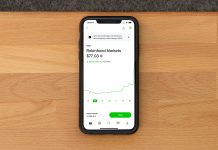Robinhood has removed its restrictions on trading GameStop stocks after facing criticism from users and lawmakers.
The stock-trading app had previously restricted trading in GameStop and other companies amidst an unprecedented trading surge caused by members of the WallStreetBets subreddit, arguing it was forced to do so to ensure it could cover potential losses.
Robinhood lifted the restrictions on Friday. “There are currently no temporary limits to increasing your positions,” the WealthTech company said in a statement.
The about-face comes after politically opposite politicians such as Alexandria Ocasio-Cortez and Ted Cruz have called for an investigation into Robinhood’s actions.
The GameStop trading surge began on the WallStreetBets online forum on the website Reddit, where people decided to bet against some major hedge funds such as Melvin Capital and Citron, who had put money to the notion that the video game retailer would eventually collapse.
GameStop is one of the retailers that have been particularly hard hit by the pandemic as fewer customers could enter their stores and due to growing e-commerce competition.
It was amidst all of this that Robinhood announced on January 28 that it would restrict trading in GameStop and other companies’ shares that had been singled out by the WallStreetBets subreddit. The list of businesses singled out in the WallStreetBets subreddit included Nokia, AMC and Blackberry.
“In light of recent volatility, we restricted transactions for certain securities to position closing only,” Robinhood said at the time.
The imposed restrictions meant that users could close their positions but not make any further bets.
Robinhood later explained in a following post that it had imposed the restrictions in order to avoid the risk of not being able to afford the mandated deposits for those trades.
“It was not because we wanted to stop people from buying these stocks,” Robinhood said in a statement. “We did this because the required amount we had to deposit with the clearinghouse was so large – with individual volatile securities accounting for hundreds of millions of dollars in deposit requirements – that we had to take steps to limit buying in those volatile securities to ensure we could comfortably meet our requirements.”
Nevertheless, the decision combined with reports about service outages caused both users and lawmakers to lash out against Robinhood.
Some pointed out what they saw as the apparent irony “of a company named Robinhood protecting the rich from the poor.”
Robinhood later raised $1bn in emergency funds in order to meet the trading demands and to protect itself financially.
Last week, the decacorn secured another $2.4bn in a new round led by Ribbit Capital, with contributions also coming from existing investors ICONIQ Capital, Andreessen Horowitz, Sequoia, Index Ventures and NEA.
“This round of funding will help us scale to meet the incredible growth we’ve seen and demand for our platform,” Jason Warnick, CFO at Robinhood, said at the time. “We are humbled by our customers’ response to our offering, and remain inspired by everyday people taking control of their financial futures.”
Following the trading turmoil of the past few weeks, the US government has moved to ensure that a similar boom and bust doesn’t happen again.
Treasury secretary Janet Yellen has convened regulators to that affect and the government is reportedly exploring a crackdown on market manipulation and a tax on financial transactions, The Guardian reported.
Copyright © 2021 FinTech Global











